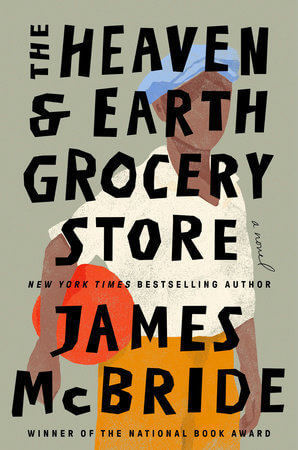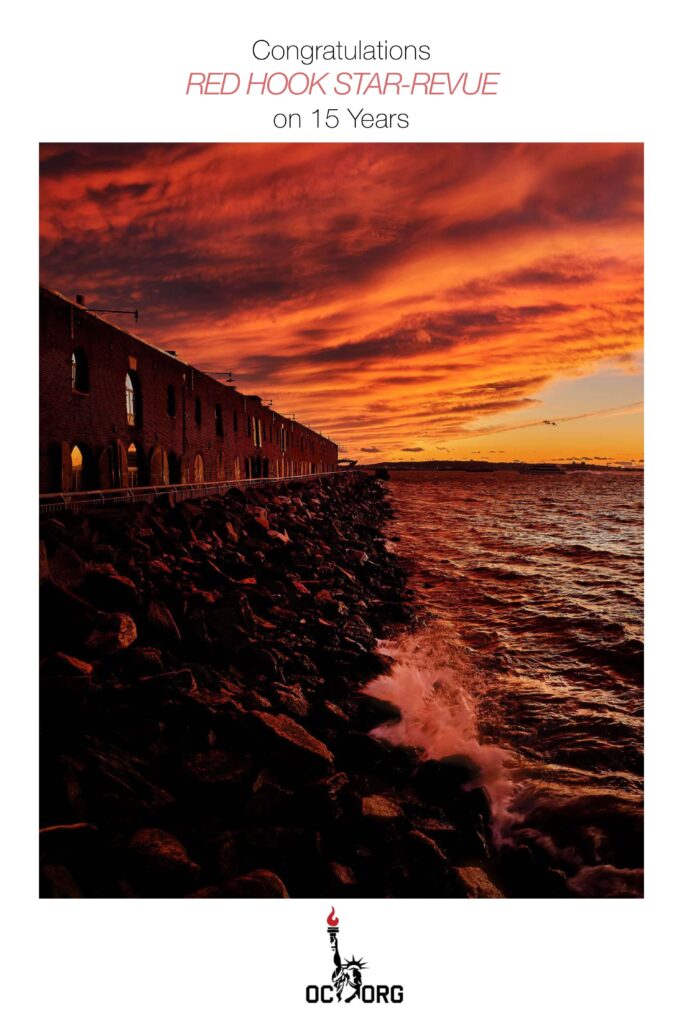Review of The Heaven & Earth Grocery Store, by James McBride (Riverhead Books; 2023; 386 pages; $28)
Reviewed by Michael Quinn
Two kinds of people live in Chicken Hill, Pennsylvania: immigrant Jews and Blacks. These two groups eye each other warily, thinking they have nothing in common. Neither is especially thrilled to be there. It’s a rundown place, cut off from working utilities by industrialized racist bureaucracies and choked by industrial pollution. Dumpy houses sit in muddy yards. Sewage pools in puddles on potholed streets. Yet this scrappy, scraggly, unlovely place is home for both of them.
This is the setting for James McBride’s latest novel, “The Heaven & Earth Grocery Store.” It’s a sweeping saga that traces the lives of a vast cast of characters over a long period. It’s about a small town, the people who live in it, and the unlikely bonds they form. It’s about their outward differences and their common bonds.
The story begins in 1972 when construction workers uncover a skeleton in a well. The action then moves to the 1920s, where we see the two places that give the town its heart. One is the vaudeville-type theater run by Moshe, a long-suffering Jewish Romanian refugee who discovers he can make money pitching shows to Black audiences. The other is the grocery store run by his polio-crippled wife, Chona. She extends a hand of friendship (and often free food) to everyone who walks through the grocery’s sagging front door.
When Moshe’s fortunes begin to rise, the first thing he wants to do is move. But Chona won’t hear of it. This isn’t only the place where she was born. It’s the place where she feels a sense of purpose. The daughter of a rabbi, she feels called to be of faithful service to the people around her, whom she thinks of as “neighbors with infinitely interesting lives.” She calls out the white politicians’ corruption and racism, writing angry letters to the newspaper about a parade led by the local chapter of the Ku Klux Klan.
The town’s Black folks aren’t in a position to make waves. They just try to get by. They usually keep their troubles to themselves. But when Mosche’s righthand man, Nate, comes to him to hide his orphaned, disabled nephew Dodo from state officials, who want to institutionalize him, Chona agrees to harbor Dodo and protect him with a mother’s love. And it’s the ferocity of that love that inspires the community to come together when the real trouble begins.
By facing a shared crisis and setting aside suspicions about otherness, the town’s inhabitants locate deep-rooted commonalities, overcome superficial differences, and discover the power of community. No matter how hard circumstances outside our control make life for us, McBride seems to say, small kindnesses make a huge difference in how we feel about our lives.
It’s impossible not to admire the ambition and scope of McBride’s work here. Yet I can’t help but feel that he didn’t work from an outline so much as an agenda—a humanitarian one, but an agenda, nonetheless. Every “good” character is designed to be a mouthpiece for a message of hope. And the villains are so broadly drawn that they may as well be twirling their invisible mustaches. There is much detail in “Heaven & Earth,” but nuance? Not so much.
McBride is an accomplished, lauded writer, and that skill is on display here—but so is self-indulgence. Look elsewhere if you like a tight plot and a fast pace in the novels you read. This is a noodling, doodling story whose forward momentum drags under the weight of endless backstory. Over the course of reading, as McBride introduced yet another new character and another convoluted plotline, I dreaded turning the page. You will likely have a hard time keeping track of who’s who. But the worst part is, it doesn’t matter because it’s so obvious where McBride is heading with all of this from the outset. Despite everything else that he’s crammed into the novel’s nearly 400 pages, there’s still something missing—the element of surprise.
Delivering a message of hope is always a worthwhile cause. But in “The Heaven and Earth Grocery Store,” it lands with the heavy thud of propaganda.
Author
Discover more from Red Hook Star-Revue
Subscribe to get the latest posts sent to your email.










